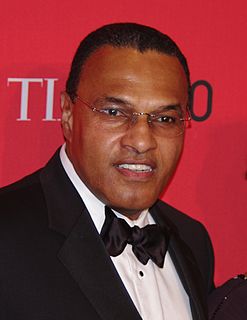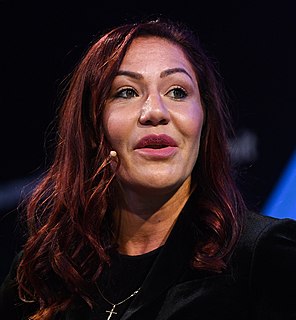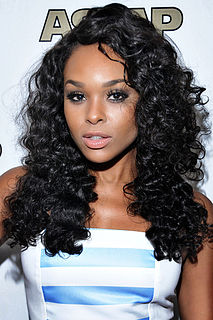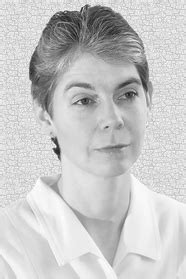A Quote by Taraji P. Henson
Katherine Johnson passion for math, the way I light up when I get asked questions about acting is the way her eyes danced when she talked about math and how she wanted people to fall in love with numbers the way that she did. If I had a teacher like that, I could have been a rocket scientist.
Related Quotes
She was beautiful, but not like those girls in the magazines. She was beautiful, for the way she thought. She was beautiful, for the sparkle in her eyes when she talked about something she loved. She was beautiful, for her ability to make other people smile, even if she was sad. No, she wasn't beautiful for something as temporary as her looks. She was beautiful, deep down to her soul. She is beautiful.
I talked to Katherine Johnson, and I tried to make it weighty by asking things like, "How as a Black woman did you do your work in NASA? They were misogynistic, and I'm sure you got called the n-word." She was just like, "Well, that was the way it was. I just did my job. I wanted to do my job." She was just so humble.
Ask your child for information in a gentle, nonjudgmental way, with specific, clear questions. Instead of “How was your day?” try “What did you do in math class today?” Instead of “Do you like your teacher?” ask “What do you like about your teacher?” Or “What do you not like so much?” Let her take her time to answer. Try to avoid asking, in the overly bright voice of parents everywhere, “Did you have fun in school today?!” She’ll sense how important it is that the answer be yes.
He began to trace a pattern on the table with the nail of his thumb. "She kept saying she wanted to keep things exactly the way they were, and that she wished she could stop everything from changing. She got really nervous, like, talking about the future. She once told me that she could see herself now, and she could also see the kind of life she wanted to have - kids, husband, suburbs, you know - but she couldn't figure out how to get from point A to point B.
"She (Minnie Ruth Solomon) was unusual because even though I knew her family was as poor as ours, nothing she said or did seemed touched by that. Or by prejudice. Or by anything the world said or did. It was as if she had something inside her that somehow made all that not count. I fell in love with her some the first time we ever talked, and a little bit more every time after that until I thought I couldn't love her more than I did. And when I felt that way, I asked her to marry me . . . and she said she would."
She didn't like to be talked about. Equally, she didn't like not to be talked about, when the high-minded chatter rushed on as though she was not there. There was no pleasing her, in fact. She had the grace, even at eleven, to know there was no pleasing her. She thought a lot, analytically, about other people's feelings, and had only just begun to realize that this was not usual, and not reciprocated.
She went out and took a last long look at the shabby little library. She knew she would never see it again. Eyes changed after they looked at new things. If in the years to be she were to come back, her new eyes might make everything seem different from the way she saw it now. The way it was now was the way she wanted to remember it.
I have to always, always pay homage to a woman I never met but she touched me like she touched so many others with that amazing voice, Whitney Houston. The very first time I heard her voice, I knew I wanted to make people feel that way. Even if I couldn't do all of that that she did, the way she was able to tell my story without even knowing me, the way she could feel what I didn't know how to express, it was spiritual almost.
As a child, Kate hat once asked her mother how she would know she was in love. Her mother had said she would know she was in love when she would be willing to give up chocolate forever to be with that person for even an hour. Kate, a dedicated and hopeless chocoholic, had decided right then that she would never fall in love. She had been sure that no male was worth such privation.
I talked to my mother about it a lot. I asked her what it was like to grow up in New York and Harlem in the 1920s and 1930s, and I asked her about a woman leaving her husband. I asked her about how she would feel about that woman, and my mother grew up in the Church Of God In Christ, and she told me that the woman might be isolated because the other women thought she might go and come after their husbands. That's how they thought then.
I was amazed by this person who, even though she had everything, would go to feed the homeless and visit sick children and Aids victims. It was like a fairy tale. Who was she really? Why did she do this? She was trying to find love. I wanted the world to see her kindness, her humility: I think she realised that would be her way.



































